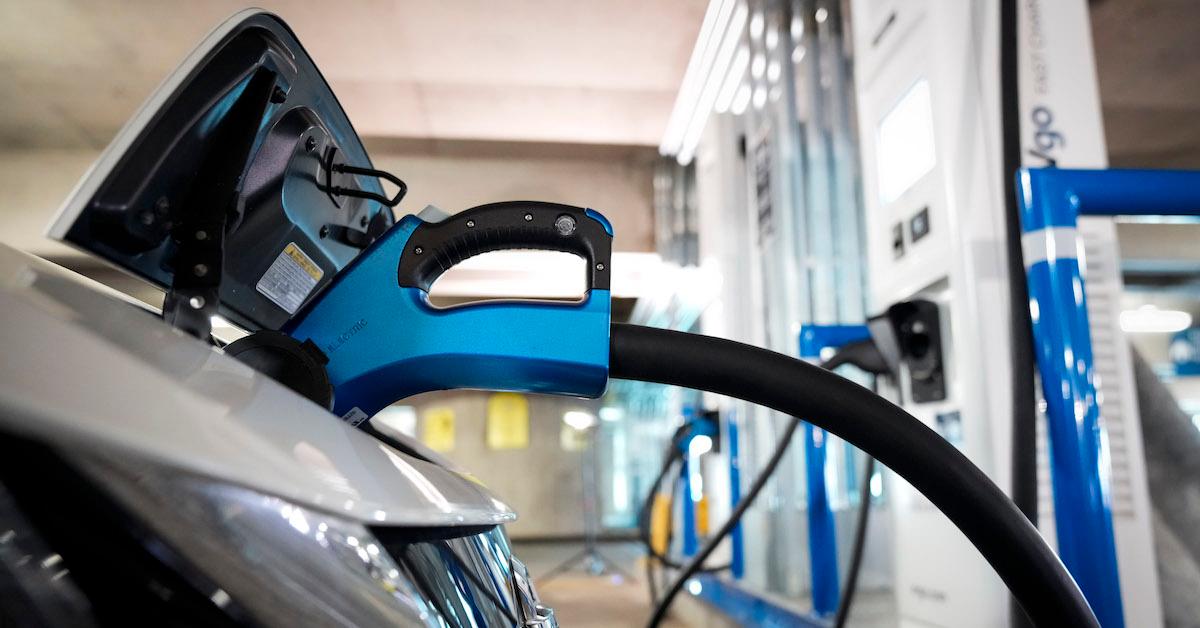Cars Produce More Pollution Every Year Than You Might Think
Published Nov. 14 2022, 12:29 p.m. ET

Cars can easily be considered one of the greatest inventions of the modern world. They have transformed the ways so many of us live, given us greater ways to connect with others, and allowed people to live longer lives. But of course, they don’t come without their downsides.
Unfortunately, the gases that cars produce not only harm human health, but they aren’t great for the environment. According to the U.S. Department of Ecology (DOE), burning gas and fuels from cars contain greenhouse gases that contribute to the climate crisis. But how much pollution do cars produce? Here’s what we know.
How much pollution do cars produce in a year?
According to the U.S. Environmental Protection Agency (EPA), a “typical passenger vehicle” releases about 4.6 metric tons of carbon dioxide every year. Google says that’s about 10,141.3 pounds, but the agency admits that this number does come with a few assumptions about the car in question.
For one, the EPA says that this “typical passenger vehicle” has a “fuel economy of about 22.0 miles per gallon and drives around 11,500 miles per year.” But this isn’t the only greenhouse gas that cars emit.

On top of carbon dioxide, methane and nitrous oxide comes out of a car’s tailpipe and hydrofluorocarbon, a man-made compound, is released from car ACs leaking. The EPA doesn’t give an exact number of how much of these gases are produced from a car in a year, but it is small in comparison to the amount of carbon dioxide. However, these gases are still important to note because they have higher “global warming potential” than carbon dioxide.
Unfortunately, it looks like the bigger the car, the bigger the problem for the environment. According to The Guardian, SUVs release 700 megatonnes of greenhouse gases every year — and just one megatonne is equal to 1,000,000 tonnes.
Because of this, it’s no surprise that the EPA also reports that transportation contributes about 27 percent of the U.S. total greenhouse gas emissions. This makes transportation the largest contributor in the country.
According to a 2015 study by the University of Toronto, 25 percent of cars contributed to about 90 percent of air pollution caused by cars in Toronto. One of the researchers involved, Jonathan Wang, told Boston that he suspected they were older vehicles (cars that were more than seven years old at the time).
In addition, Wang said that the way people drive could also contribute to the amount of greenhouse gases a car produces. “Cruising at normal speeds is better than heavy braking and heavy acceleration,’’ he said. “Stop-and-go traffic can increase emissions for vehicles.’’

How much pollution do electric cars produce?
Although we know gas-powered cars aren’t the best option for the environment, how do they compare against electric vehicles? The latter has been pushed as an environmentally-friendly version of the former for the longest time, but is this really true? Well, it depends.
According to the U.S. Department of Energy, electric cars do release far fewer emissions through their tailpipes than gas cars. However, it’s also important to consider the type of electric car we’re talking about.
All-electric cars that run solely on electricity don’t emit any gases themselves. But the power plants that fuel electric cars can still be a source of harmful gases. On top of that, there are still regions of the U.S. that “depend heavily” on coal to create electric power. Hybrid electric vehicles still emit gases as they are driven, but still at a significantly lower rate than gas cars.